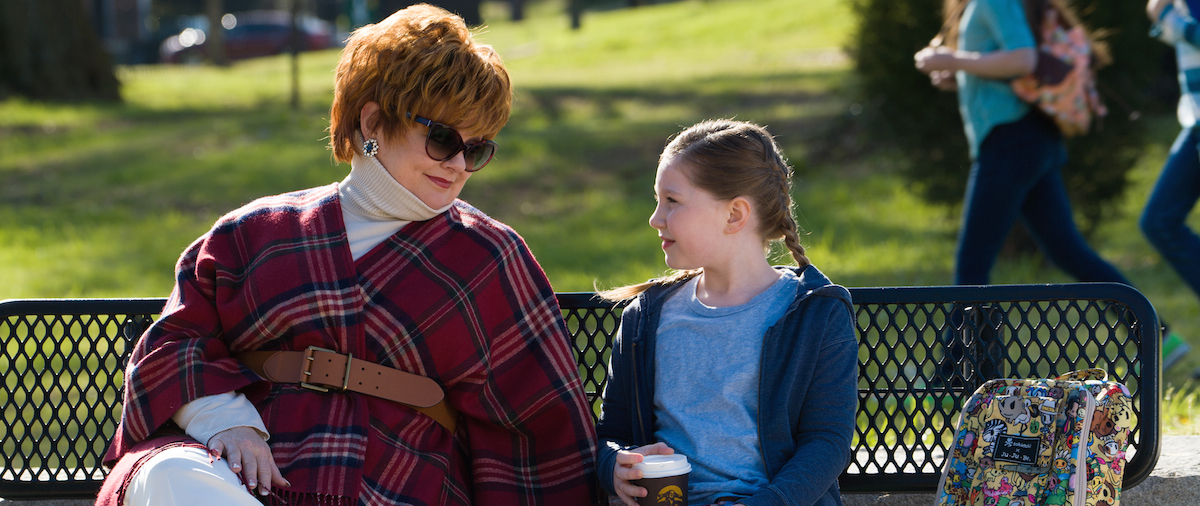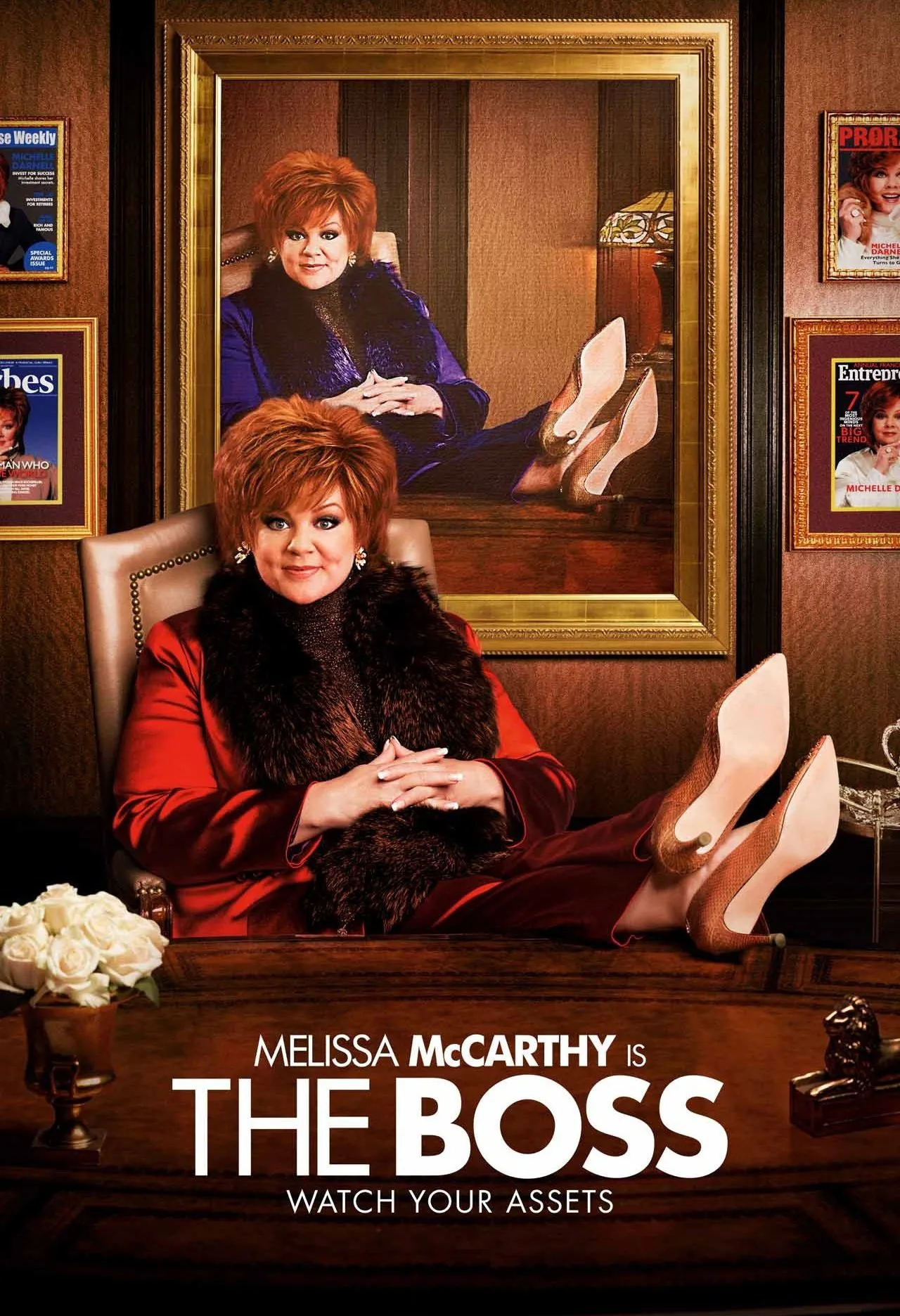“The Boss,” a comedy starring Melissa McCarthy and directed by her husband, Ben Falcone, is more interesting to talk about than it is to watch. That’s not saying much, because it is the worst kind of bad movie. This film about a disgraced businesswoman trying to reinvent herself isn’t actively, confidently, exuberantly bad, in a way that engages with you and forces you to react. It’s passively bad. It switches gears to no discernible purpose and has things happen that don’t constitute “events” in any meaningful sense, and throughout its last hour it keeps jumping into your lap and demanding love without doing anything to earn it.
I said up top that Melissa McCarthy plays a disgraced businesswoman trying to re-invent herself. If that description were the main motor driving “The Boss” it might’ve at least had some zing. McCarthy is a brilliant physical comic, in a particular mode: id-monster, reptilian brain clowning. She’s the kind of actor who can crash through a wall spouting gibberish and make you believe that it’s something that a person might actually do. Like Jonathan Winters, Chris Farley, early Steve Martin and Robin Williams, she shines when disrupting order—when unthinkable desires suddenly seize her characters, or unacceptable thoughts make their way from their brains and express themselves as uncalled-for, bizarre or hurtful observations. But that’s not what she’s doing here. Here she’s mostly begging for love.
McCarthy’s other star vehicles have had a bit of this “please love me” thing, but in general, the less obviously her films go to that well, the more focused and entertaining they are (which is one reason why “Spy” is a better film than “Identity Thief“). McCarthy’s character in “The Boss,” Michelle Darnell, is a self-help guru and businesswoman extraordinaire who was raised in an orphanage where she was repeatedly paired up with possible adoptive families who all rejected her and sent her back to the care of the sisters. The movie drains her of any distinguishing characteristics save poor impulse control and pathological neediness. When the neediness overwhelms everything else (which happens around the 15 or 20 minute mark) the effect is off-putting and depressing, and there are no compensatory virtues (brilliantly staged slapstick, well-rounded characters, audacious images) to distract you from how tedious it all is.
What a shame; the filmmakers might’ve really had something. The opening ten minutes do a fine job of explaining, within the confines of super-broad comedy, how this woman channeled her feelings of loneliness and rejection into financial success. Michelle fills huge auditoriums with people who’ve come to hear her preach the gospel of wealth and autonomy: cutting off people who are dragging you down, not giving a damn what anybody thinks of your ambition and appetite, doing whatever you have to do to get over on the competition. Michelle makes her entrance on a huge sculpture of a phoenix, a mythological animal that will pop up as an inspirational symbol later. She whips ticket buyers into a frenzy by promising to teach them how to make “some real f—–g money!” As written by McCarthy, Falcone and Steve Mallory, this sequence and the one immediately following have a goofy satirical spark. Even without the orphanage backstory, we would have figured out that the heroine grew up poor: she thinks of money only in terms of what she can buy with it, and her idea of how rich people live is a cartoon fantasy of fancy cars, country clubs, hotel suites, valets, and self-portraits. It’s bracing to watch Michelle profit off people who also think of money in terms of vindication and happiness. There’s a metaphor for modern America in here somewhere, and “The Boss” gets close to finding it.
Then Michelle’s former lover (mad-eyed Peter Dinklage, who completely commits to a small, weird part) sends her to prison for insider trading. When she gets out, she has no money, property or status and is for all intents homeless. She insinuates herself into the life of her former assistant, Claire (Kristen Bell) and Claire’s daughter Rachel (Ella Anderson). Michelle then gets the bright idea of turning Claire’s baking prowess into a product line that will displace the film’s Girl Scout stand-in, a nonprofit organization peddling cookies nationwide.
After that, most of the film’s scenes hinge on Claire and Rachel being affected by Michelle making rash, huge decisions without their approval, always returning to whether or not Michelle will accept the unconditional love freely offered by adorable Rachel. As the mature one of the trio, Bell, a terrific actress in screwball comedy and hard-boiled roles, is wasted in a part so bland that anyone could have played it.
There are a few good bits of slapstick in “The Boss,” including an early teeth-whitening scene where McCarthy speaks with her lips drawn back to expose her gums, and a clash of rival girl gangs that rips off the battle of the news teams in “Anchorman: The Legend of Ron Burgundy.” But the mindless sappiness (which, unlike sentimentality, is a sin in comedy) ruins everything. The movie has no point-of-view on Michelle except that she needs support and should get it, and it goes about expressing this notion so haphazardly, hammering on what it imagines to be your buttons, that it makes a supposedly fearsome businesswoman seem incompetent, unhinged and pathetic.
Seventeen years ago, the great cultural critic Ron Rosenbaum wrote a piece titled “Dear Albert Brooks: Please Don’t Go Warm,” about “how warmth ruins comics.” He wasn’t talking about comedians acting in dramas—that’s a different mode, and there are many successful examples of performers switching between them—but the tendency of great screen clowns to re-tool their abrasive, chaotic, even demonic screen personas, and appear in movies that are all about how sweet their characters are deep down, and how the world just needs more love, etc. Rosenbaum was writing about a man whose films evolved from hard-edged and a bit confrontational to fuzzy, but his hypothetical notes from a studio executive to Brooks could have easily been spoken to Steve Martin, Robin Williams, Eddie Murphy and many other comics: “You can be more than a comic, you should be a star, a leading man, and leading men have to be lovable. Give yourself a little warmth. Make yourself a romantic hero.” It’s a dangerous game to play, and McCarthy loses it here. There’s nothing going on in “The Boss” except Melissa McCarthy groveling for affection from the same viewers who already bought tickets to see her.




















